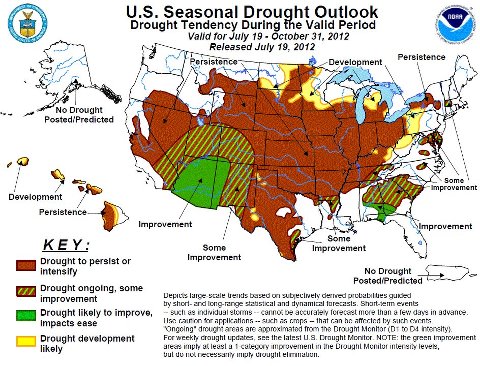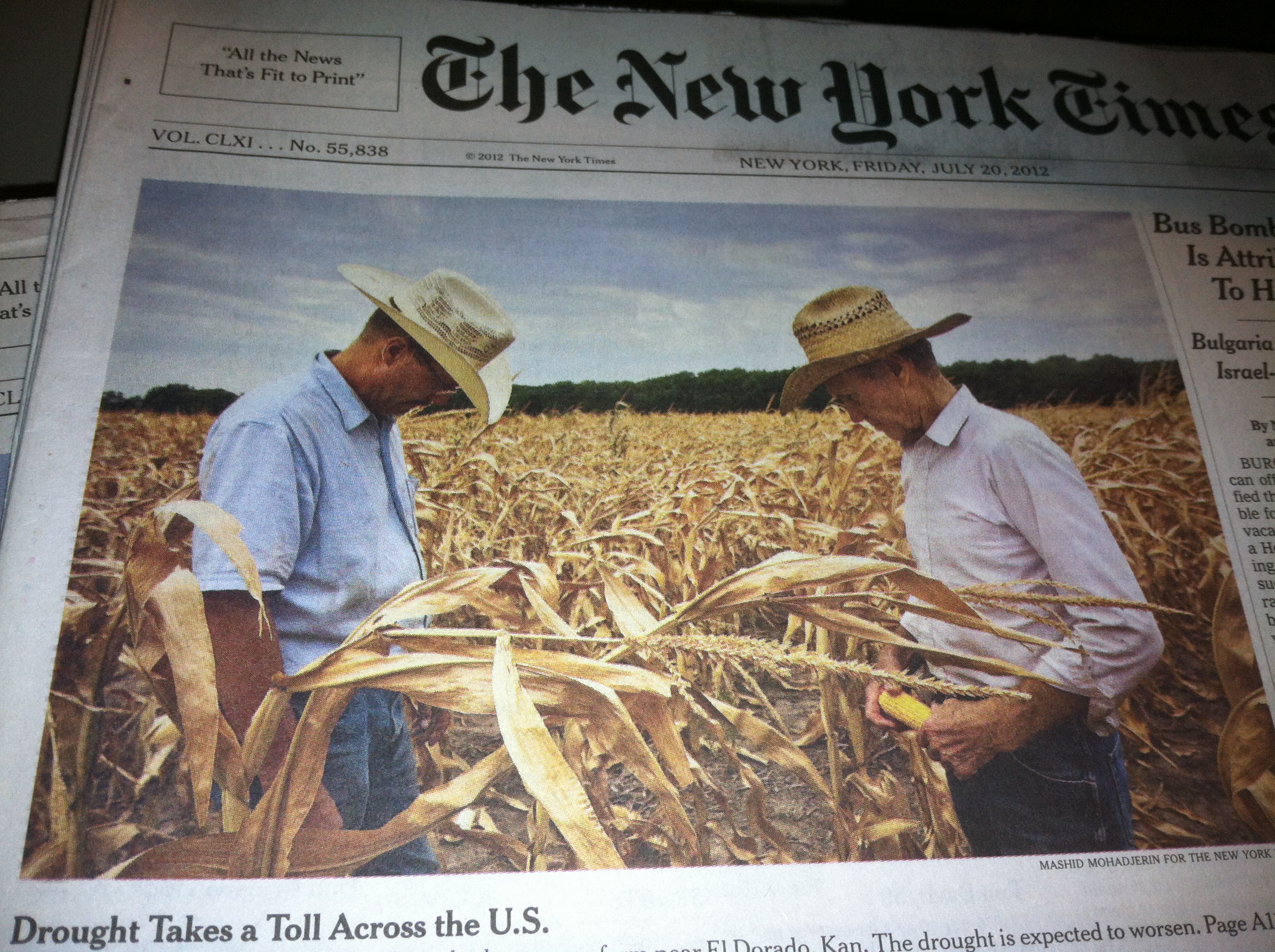I haven’t been typing away at this blog lately because I’ve been busy this summer keeping a number of vegetable garden projects alive and watered. We’ve had 4 heat waves so far this year and its not even August yet. This unusual heat has put lots of strain on many vegetable crops. Veggies such as salad greens, bok choy and spinach bolt ( go to flower) before their time due to the heat.
Luckily, I have access to water and have been making sure my gardens are watered early in the morning and evening too on the super hot days. My farmer’s tan is toasty brown and I’m sure my Vitamin D levels are quite optimal.
Here in this part of New York, we are the lucky ones so far. We’ve had no extended power outages and occasional soakings from thunder storms and rainy days.
1000 counties in 26 states are not so lucky. The USDA has declared them to be natural disaster areas due to a drought that has not been this intense since the 1930’s dust bowl era.
Without a doubt, man made global warming is responsible for the surging heat and deadly droughts. I have been very aware for a number of years now that climate change will directly impact our food supply. Many of my blog posts have touched on this topic over the past few years.
2012 will be the year that folks in the USA fully understand what a planet with more CO2 feels like. Mother Earth is sending us a wake up call, loud and clear.
Cattle ranchers are sending more beef to market right now because pastures are bone dry, the water just isn’t there to feed them. This will temporarily reduce the price of meat, but in the long run, a steak will be far more costly.
When it comes to corn, we’ve got a serious problem. The heat and drought hit at just the right time to destroy most of the nation’s corn. While this isn’t the same corn on the cob that you’ll find in summer farm stands, this corn fuels a big big part of our industrial food system. Cows and chicken eat this corn, and don’t forget High Fructose Corn Syrup (HFCS) and ethanol. I’ve had my eye on the corn based biofuel insanity since 2008.
Climate change is here to stay. As Bill McKibben wrote in his book Eaarth that we’ve already managed to change the planet in such fundamental ways that it’s not really the planet we thought we knew.
The sooner we face the fact that we have a real problem with burning fossil fuels, the sooner we will start to work together on meaningful solutions. If you’re not yet convinced that we have a problem or know someone who remains in denial, I suggest you show them this little 8 minute montage of news reports from this summer. Welcome to the Rest of Our Lives.
Nothing else really matters.



